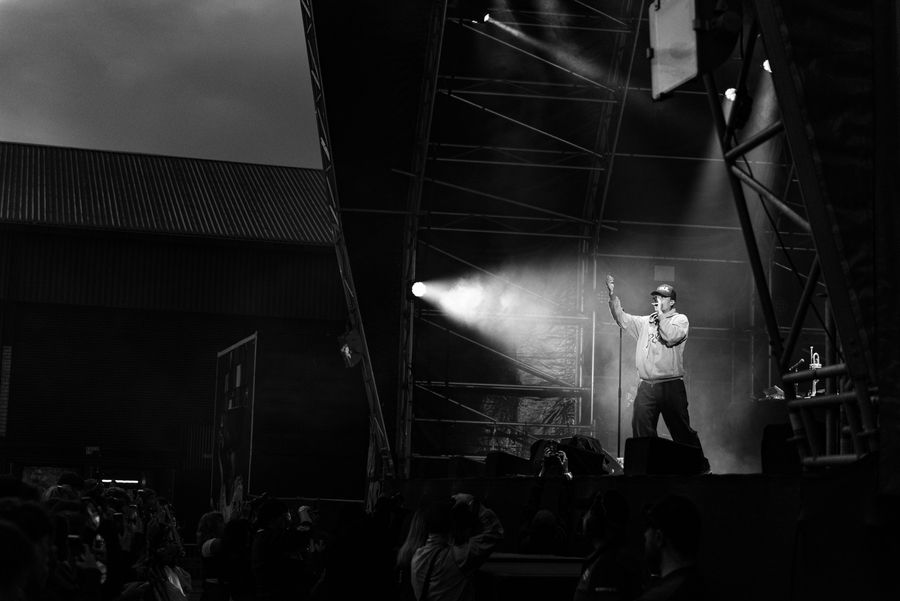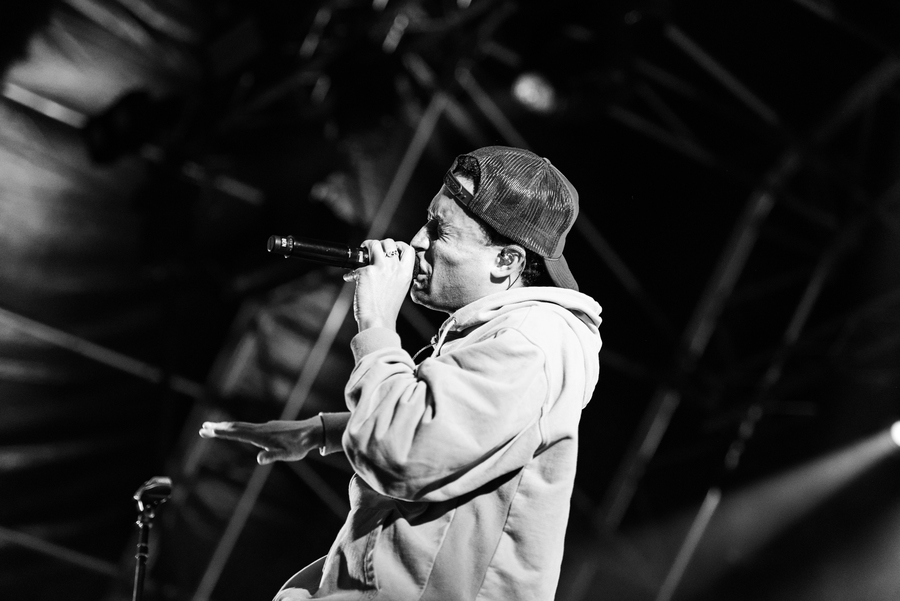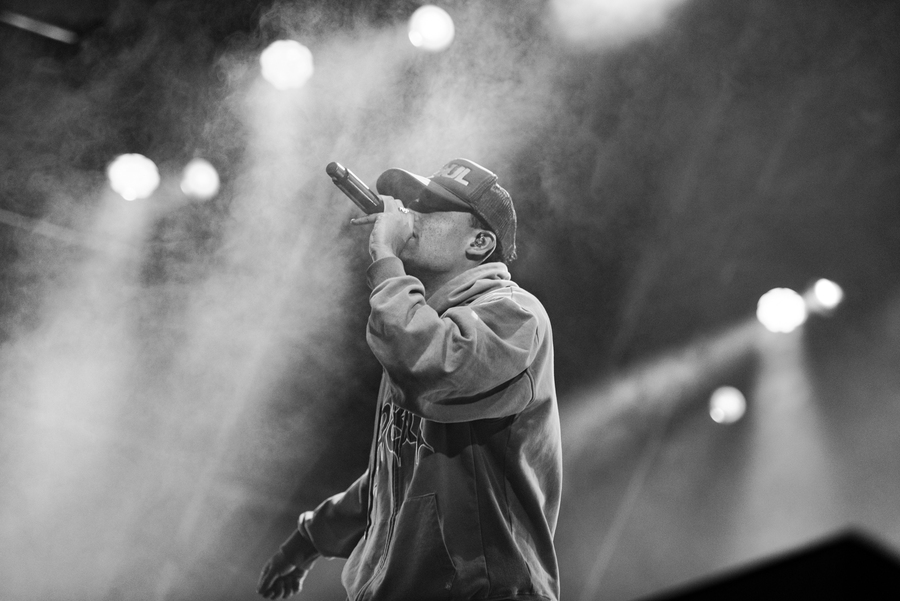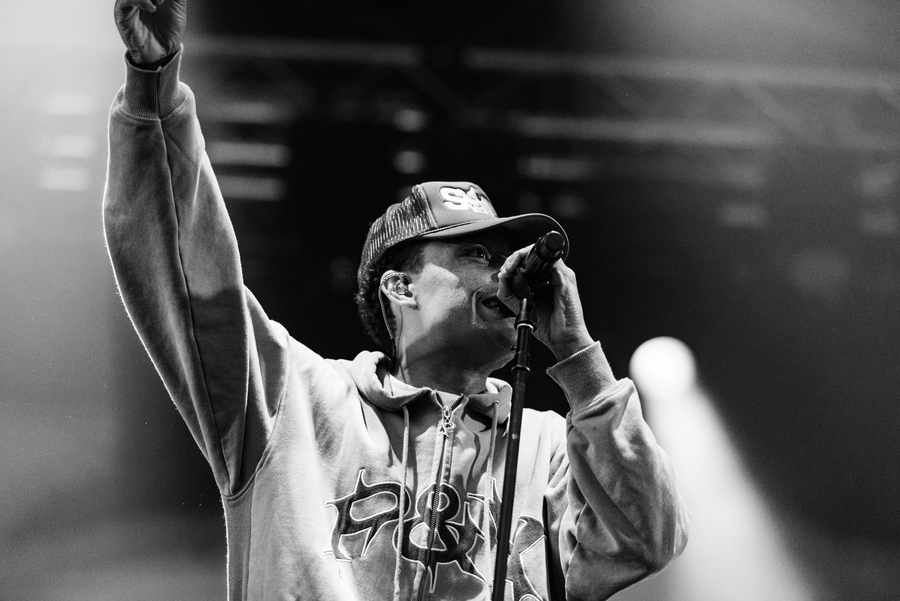Loyle Carner @ SWG3 Galvanizers Yard, Glasgow, 15 Aug
Loyle Carner establishes a love-in at SWG3's Galvanizers Yard as the sun sets for a performance that feels organic, textural and alive
The quasi-industrial SWG3 Galvanizers Yard, isolated from Glasgow’s West End around it, is perfect for hosting Loyle Carner’s audience; a microcosmic community who match Carner’s equable grace on stage. Over 70 minutes, Carner establishes a love-in as the sun sets behind the buildings that shelter the yard, openly discussing his family, his background, and where he is in his life right now.
In anticipation of this, set opener Hate is a catharsis delivered over breakbeat; shaking off the anger as you would a wet umbrella as you step inside. Carner’s band amps up the dynamics of what is a visually pared-back set, while Carner’s audio is set up against the grain of most commercial hip-hop shows, opting to favour a live mic as his windvane, opposing the backing track many seem to favour. It all contributes to a set that feels organic, textural and alive. Only other voices – Sampha on Plastic, John Agard’s narration on Georgetown – are projected, moments of reflection and appreciation.
Sincerity is Carner’s calling card, his writing confessional and his live set is evidently no different. Breaks in the constant drum-laden rattle of the set are filled with familial sentiment: he speaks of his son, of the recent birth of his second child and how at-home he feels in Scotland, being half-Scottish. His story of looking out at Arran – where his late grandfather once lived and with which he has a particular affinity – from Prestwick Beach with his grandmother is particularly sweet (and, to this writer, relatable).
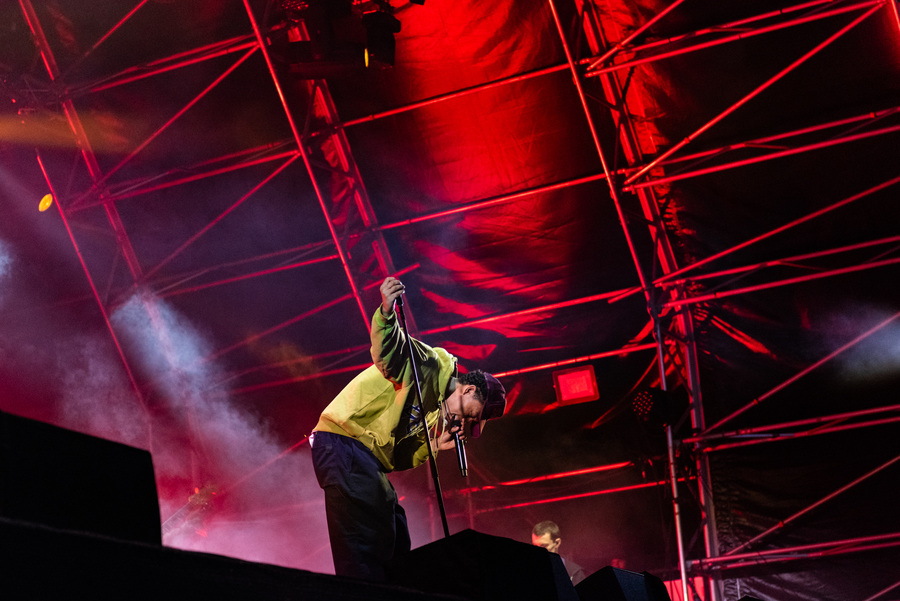
Image: Loyle Carner @ SWG3 Galvanizers Yard, Glasgow, 15 Aug by Kate Johnston
Nobody Knows (Ladas Road) is placed brilliantly mid-set, its towering T.L. Barrett and the Youth for Christ Choir sample bringing the captive audience into blistering unison. And Carner and his band maintain this momentum, this bare brilliance. The closing run launches from Speed of Plight – all messy lyrical syntax and musical cyclicality – before returning to the stage to perform an in-progress poem to an audience so still you’d think you were watching him from the solitary comfort of your living room. It’s an apt consolidation of Carner’s ethos; were you to take away the whip-crack of the band, the reverberation of choir sampling, Carner’s lyricism and performance style is indiscernible from eminent performance poetry.
As Carner plays closer Ottolenghi, there's a sense of collective abreaction, a kind of therapeutic catharsis. Carner doesn’t play with facade or as character, but levels with his audience in a very human, emotionally-informed way. Combined with a thumping live band and a set list that’s just as airtight, the breath you let out on leaving is satisfaction personified; an emotional gratification in harmony with a constant in-the-pocket groove.

